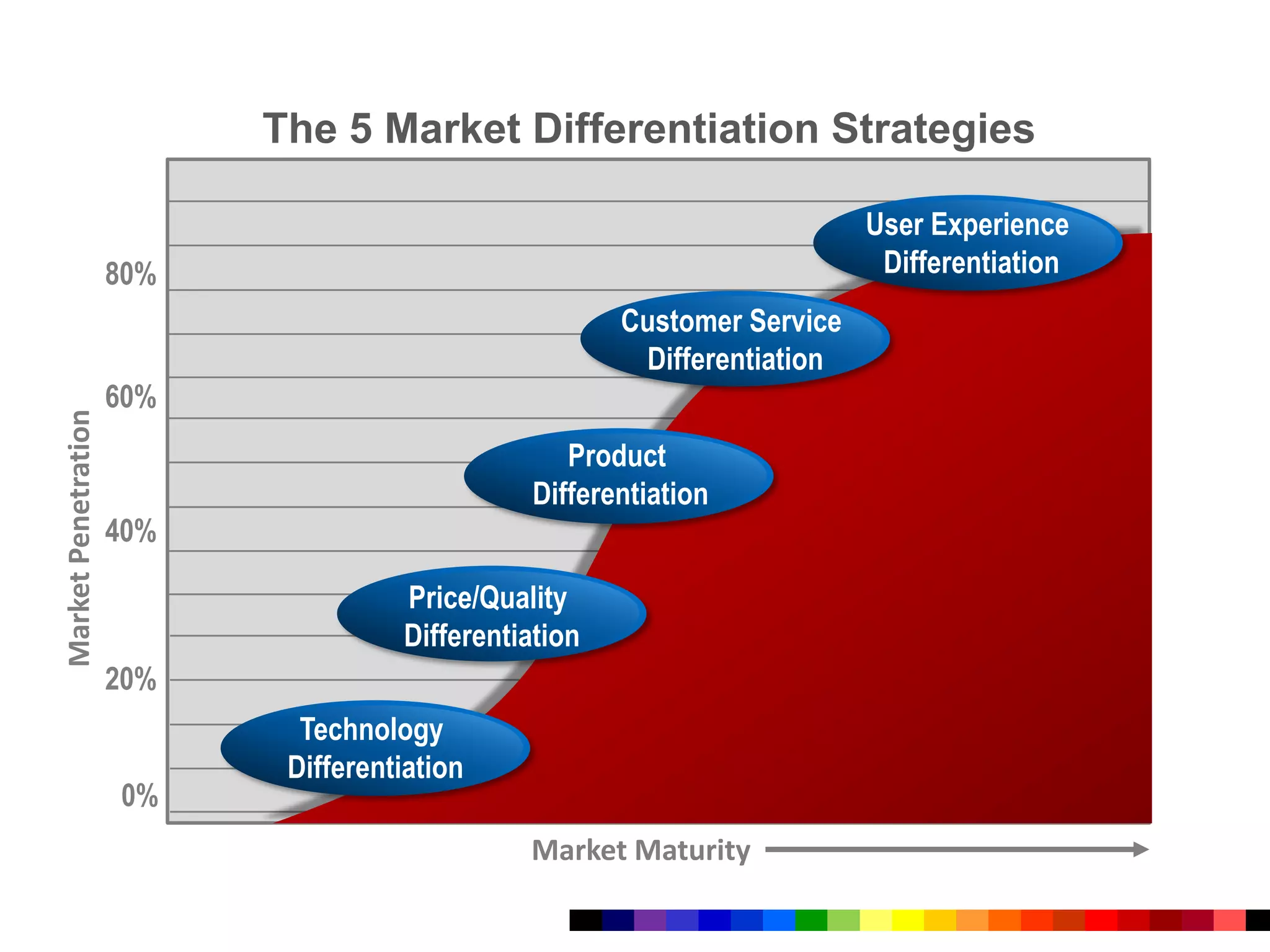Market Differentiation
What is Market Differentiation?
Definition:
Market Differentiation refers to the strategic process through which a company distinguishes its products, services, or brand from competitors in the marketplace. The goal is to highlight unique features, benefits, or qualities that set the company apart and make it more appealing to the target audience. Differentiation can occur through various means, such as product innovation, branding, marketing strategies, customer service, and overall positioning in the market.
Analogy:
Consider market differentiation as the distinctive features that make a rare gem stand out in a jewelry store. Just as unique characteristics make a gem more valuable and desirable, market differentiation enhances a company’s perceived value and attractiveness to customers in a crowded marketplace.
Further Description:
Market differentiation involves several key components:
Unique Value Proposition (UVP): Clearly articulate what sets your products or services apart from the competition. This could be a unique feature, superior quality, better pricing, or exceptional customer service.
Product or Service Innovation: Introduce innovative features or improvements to your products or services that address specific customer needs or pain points, providing a competitive edge.
Brand Positioning: Develop a strong brand identity and position your brand in a way that emphasizes its distinctiveness. This includes creating a compelling brand story and visual elements that resonate with the target audience.
Marketing and Communication: Communicate your unique selling points through effective marketing and communication strategies. Highlight what makes your brand special and how it adds value to customers’ lives.
Customer Experience: Provide an exceptional customer experience that goes beyond the product itself. Outstanding customer service, user-friendly interfaces, and hassle-free transactions contribute to positive differentiation.
Niche Targeting: Focus on a specific niche or segment of the market where you can excel and meet specialized needs better than broader competitors.
Quality and Consistency: Ensure consistent quality in your products or services. Reliability and a commitment to excellence contribute to positive perceptions in the market.
Why is Market Differentiation Important?
Competitive Advantage: Market differentiation provides a competitive advantage by making a company stand out in a crowded marketplace, attracting customers away from competitors.
Brand Loyalty: Unique offerings and a strong brand identity build customer loyalty. When customers perceive a brand as distinctive, they are more likely to remain loyal and make repeat purchases.
Increased Perceived Value: Differentiation enhances the perceived value of products or services, justifying premium pricing and creating a positive image in the minds of consumers.
Market Resilience: A differentiated brand is often more resilient to market fluctuations. It can better weather economic challenges and changes in consumer preferences.
Attractiveness to Investors: Investors are often drawn to companies with a clear market differentiation strategy, seeing them as more likely to succeed and grow in the long term.
Examples and Usage:
Apple Inc.: Apple is a prime example of market differentiation through product innovation, design, and branding. Its focus on sleek design, user-friendly interfaces, and a seamless ecosystem sets it apart in the tech industry.
Tesla: Tesla differentiates itself in the automotive industry through its emphasis on electric vehicles, cutting-edge technology, and a commitment to sustainability. The brand has become synonymous with innovation in the car market.
Dollar Shave Club: Dollar Shave Club entered the shaving industry with a differentiated pricing model and a subscription-based approach, challenging traditional razor brands. Their humorous marketing campaigns further set them apart in the market.
Key Takeaways:
- Clearly articulate a Unique Value Proposition (UVP) that distinguishes your products or services.
- Embrace product or service innovation to address specific customer needs and stay ahead of the competition.
- Develop a strong brand identity and position your brand to emphasize its distinctiveness.
- Communicate your unique selling points effectively through marketing and communication strategies.
- Prioritize an exceptional customer experience to build loyalty and positive perceptions.
- Consider niche targeting to focus on specialized segments of the market.
- Ensure consistent quality to reinforce positive perceptions and build trust.





